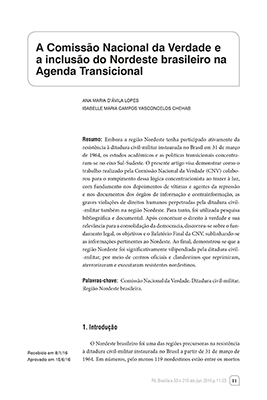Autor-máquina
Alejandro Knaesel Arrabal
DOI: https://doi.org/10.70015/ril_v61_n243_p101
Resumo
Neste artigo avaliam-se as condições sob as quais o regime jurídico dos direitos de autor é aplicável (ou não) a máquinas computacionais cujo desempenho é reconhecidamente análogo ao de sujeitos criativos. Baseado na revisão bibliográfica e na análise de discurso, o trabalho compõe-se de duas unidades: a primeira desenvolve o conceito de antropomorfismo computacional e a segunda questiona a categoria autor-máquina. Aqui, julga-se impróprio conferir a máquinas a qualidade de autor; qualquer que seja o estágio evolutivo dos modos de artificialização do pensamento e da criatividade, a autoria não se reduz a habilidade e desempenho autônomo. Sem dúvida, tecnologias de inteligência cognitiva são capazes de produzir resultados surpreendentes, mas a autoria é uma condição integrada à liberdade e à autonomia – fundamentos da dignidade humana –, o que não se confunde com a estrita capacidade técnica de produzir bens em razão da estética ou da utilidade.
Palavras-chave: direitos fundamentais; direito de autor; inteligência artificial; criatividade; desempenho.
Título, resumo e palavras-chave em inglês
Machine-author
This article evaluates under which conditions the legal regime of copyright is applicable (or not) to computing machines whose performance is recognized as analogous to that of creative subjects. Based on a bibliographical review and discourse analysis, the work is composed of two units: the first develops the concept of computational anthropomorphism, and the second questions the author-machine category. In the study, it is considered inappropriate to give machines the status of author. Whatever the evolutionary stage of the modes of artificialization of thought and creativity, authorship cannot be reduced to a question of skill and autonomous performance. There is no doubt that cognitive intelligence technologies are capable of producing different results, but authorship is a condition integrated with freedom and autonomy, taken as foundations of human dignity, which should not be confused with the strict technical capacity to produce goods in reason of aesthetics or utility.
Keywords: fundamental rights; copyright; artificial intelligence; creativity; performance.
Como citar este artigo
(ABNT)
ARRABAL, Alejandro Knaesel. Autor-máquina. Revista de Informação Legislativa: RIL, Brasília, DF, v. 61, n. 243, p. 101-122, jul./set. 2024. DOI: https://doi.org/10.70015/ril_v61_n243_p101. Disponível em: https://www12.senado.leg.br/ril/edicoes/61/243/ril_v61_n243_p101
(APA)
Arrabal, A. K. (2024). Autor-máquina. Revista de Informação Legislativa: RIL, 61(243), 101-122. https://doi.org/10.70015/ril_v61_n243_p101
